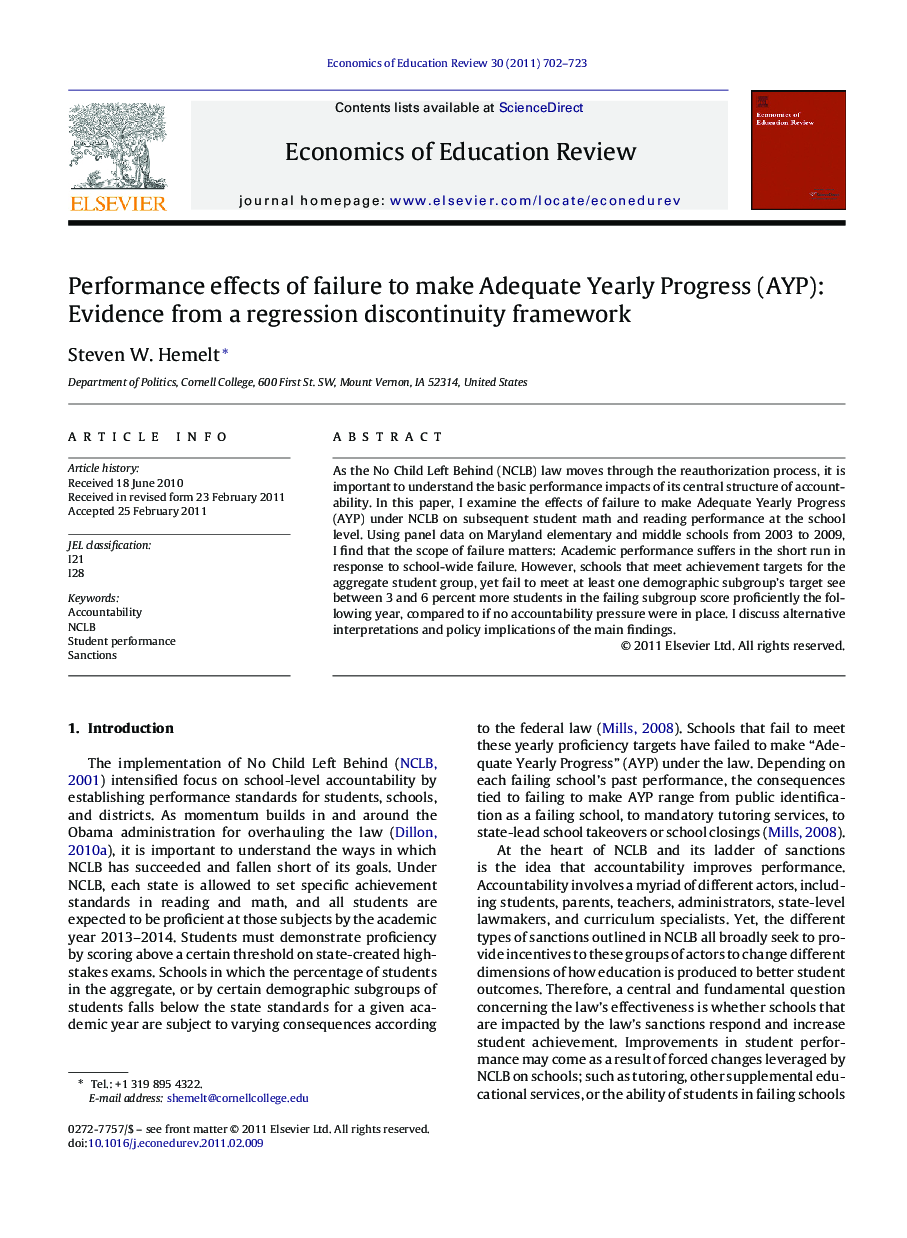| Article ID | Journal | Published Year | Pages | File Type |
|---|---|---|---|---|
| 354624 | Economics of Education Review | 2011 | 22 Pages |
As the No Child Left Behind (NCLB) law moves through the reauthorization process, it is important to understand the basic performance impacts of its central structure of accountability. In this paper, I examine the effects of failure to make Adequate Yearly Progress (AYP) under NCLB on subsequent student math and reading performance at the school level. Using panel data on Maryland elementary and middle schools from 2003 to 2009, I find that the scope of failure matters: Academic performance suffers in the short run in response to school-wide failure. However, schools that meet achievement targets for the aggregate student group, yet fail to meet at least one demographic subgroup's target see between 3 and 6 percent more students in the failing subgroup score proficiently the following year, compared to if no accountability pressure were in place. I discuss alternative interpretations and policy implications of the main findings.
► Scope of failure to meet achievement targets under NCLB affects future performance. ► Academic performance suffers in the short run due to school-wide failure. ► Subgroup proficiency improves when failure is solely due to poor subgroup scores. ► Findings support use of differentiated accountability responses to failing schools.
